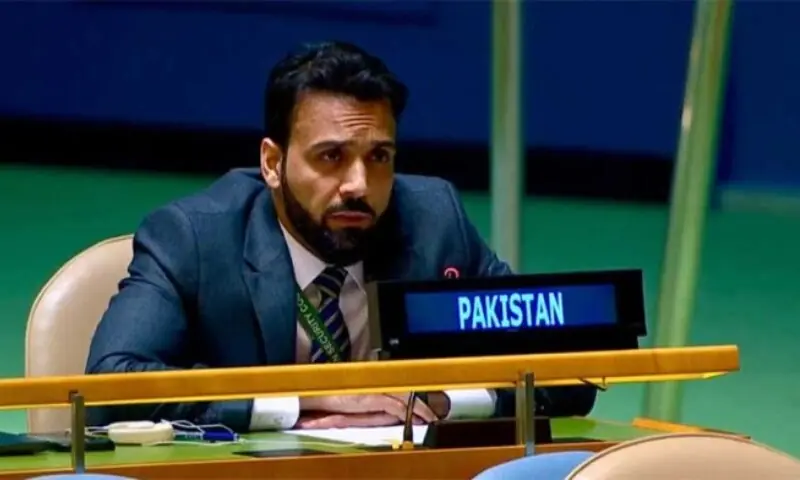Pakistan has called India a “regional bully” at the United Nations General Assembly after an Indian diplomat referred to the country as “terroristan,” the Associated Press of Pakistan (APP) reported on Sunday.
Ties between Pakistan and India have long been fraught, with four wars fought since independence. Earlier this year, a brief but intense military escalation erupted after India launched air strikes in Pakistan over the Pehalgam attack in occupied Kashmir, which killed more than two dozen people. Pakistan denied involvement, and the crisis eased following US intervention. Since then, relations have become exceedingly sour between the two nuclear-armed neighbours.
The spat unfolded during the fifth day (Sept. 27) of the 80th UNGA session in New York, where exchanges turned heated in the absence of the usual prime ministerial face-off. The sharpest blows came in the Right of Reply, with Indian representative Rentala Srinivas branding Pakistan a terrorist state, declaring: “No arguments or untruths can ever whitewash the crimes of Terroristan.”
Responding, Muhammad Rashid, Second Secretary at the Pakistan Mission, condemned the remarks as “utterly shameful,” saying India had stooped so low as to distort the name of a fellow UN member state.
Also refuting the terrorism claims made earlier by Indian External Affairs Minister Jaishankar and calling the distortion attempt “undignified”, Rashid went on to say that India itself “is not just a serial perpetrator of terrorism, but a regional bully that is holding South Asia hostage to its hegemonic designs and radical ideology.”
He called on the international community to pay attention to India’s “reckless behaviour.”
“By engaging in this kind of rhetoric, India diminishes its own credibility, showing the world that it has no substantive argument to offer—only, I am sorry to say, cheap slurs which are not worthy of serious discourse.”
Questioning the tone of the language, Rashid further said: “Such language reflects neither maturity nor responsibility. Instead, it exposes that India is frustrated and reveals its pettiness on the world stage.“
He claimed India “itself has been implicated in supporting and sponsoring terrorism beyond its borders.”
Calling it unfortunate, the Pakistani diplomat added that Indian “intelligence operatives have been accused of financing and directing groups engaged in sabotage and targeted killings across the world.”
“Undermining regional stability and violating international law is a habit for India.“
Rashid also noted that actions such as these “expose duplicity of India’s counterterrorism claims, and raise concern regarding India fuelling terrorism rather than combating it”.
He stressed that the claims made by Jaishankar were “completely devoid of facts” and an attempt to “malign” Pakistan’s name.
Earlier, the Indian minister had said that “India has confronted this challenge since independence, having a neighbour that is an epicentre of global terrorism,” without naming Pakistan.
Outlining Pakistan’s losses in the fight against terrorism, Rashid highlighted that Pakistan is “one of the strongest pillars in leading global efforts for combating terrorism.”
On the other hand, India, the diplomat pointed out, “is in the league of those who illegally occupy territories, oppress populations and violate fundamental human rights, as is the case in Indian Illegally Occupied Jammu and Kashmir.”
“State terrorism — in the form of: extrajudicial killings, arbitrary arrests, detentions, staged encounters and collective punishment under the cover of counter terrorism.”
While reaffirming Pakistan’s commitment to peace in South Asia, Rashid noted that “these goals cannot be achieved through threats and intimidation.”
On that note, he invited India to “embrace” peace, stating, “True progress requires sincerity, mutual respect, dialogue and diplomacy — principles Pakistan has upheld, and which India must finally choose to embrace, if it truly seeks peace.”
On Friday, in his address to the UNGA, Prime Minister Shehbaz Sharif highlighted the need for “proactive” rather than “provocative” leadership for South Asia, citing India’s recent aggression against Pakistan.
